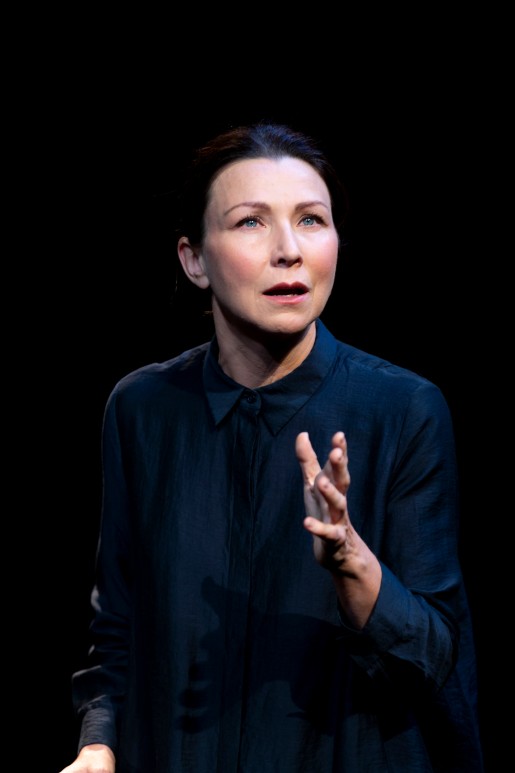Belvoir St Theatre, September 16
9/10
Virginia Woolf got one thing wrong. Near the end of A Room of One’s Own, her incandescent 1929 polemic on women’s place in the corporeal and literary patriarchies, she writes, “Much of what I have said will seem out of date.” On the contrary, among the many wonders of the piece (based on two lectures to female students at Cambridge) is its almost prescient contemporaneousness. Were she still alive she may have been gratified by our progress, but appalled that comprehensive equality remains a vanishing point on the horizon.
She may also have quickly grasped that to our 21st-century ears her condemnation of male perceptions of their supposed superiority resonates equally in any other paradigm – racism, classism, etc – where one party sets itself up as arbiter of its own supremacy by way of keeping others in submission.

Woolf’s primary contention was that, in order to write, women required two assets denied them from the dawn of time until her own day: financial independence and a room of their own. She marvels at such 19th-century pioneers as Jane Austen and the Brontes generating high art while obliged to write amid the distractions of their homes’ living rooms.
This production, Belvoir’s first in the COVID era, was to have opened in March (before countless couples discovered that two people working from home is not easy). So Anita Hegh, who plays Woolf-as-lecturer, has risen to the challenge of keeping the 80-minute text in some state of preparation for six months. She and director Carissa Licciardello have opted for her not to “act” Woolf, but rather keep the delivery understated and the words magnified.
And what writing! At its best it’s nothing less than transcendental, as when a weary Woolf declares it time to “roll up the crumpled skin of the day”. If occasionally slightly soft, Hegh illuminates the poeticism and catches the shifting tempo and vehemence of ideas so well that you hang off each new thought like a jilted lover waiting for the phone to ring.
Indeed so self-contained was she that at first it seemed a distraction when another element was added – one which turned out to be a theatrical masterstroke. Co-adapters Licciardello and Tom Wright have, in collaboration with David Fleischer (set and costumes) and Kelsey Lee (lighting), added a silent role, played by Ella Prince that may be best described as Woolf’s flaring imagination. So Prince is intermittently seen in wildly different visual and emotional configurations in a glass box – the “room”, if you will.
 Not that the lone Woolf is exactly dry. Her satire of the patriarchy pendulums between savagery, whimsy and pity. Men, she tells us, have always compulsively written about women, but why are women so much more interesting to men than men are to women? And these are the same women whom men have “locked up, beaten and flung about the room”.
Not that the lone Woolf is exactly dry. Her satire of the patriarchy pendulums between savagery, whimsy and pity. Men, she tells us, have always compulsively written about women, but why are women so much more interesting to men than men are to women? And these are the same women whom men have “locked up, beaten and flung about the room”.
The sparkling stream of words includes Woolf imagining Shakespeare having a sister, Judith: a frustrated literary genius (“Who shall measure the heat and violence of the poet’s heart when caught and tangled in a woman’s body?”), for which Hegh comes downstage, as if to confide. And then there’s the gentle, touching introduction of women loving women, a place Woolf dared to go with her all-female Cambridge audience.
Holding up Shakespeare, Coleridge, Austen and Proust as examples, Woolf ultimately concludes that the goal is for the writer to transcend their gender entirely, and be both male and female with every word.
Until October 18.